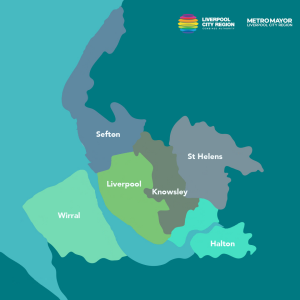£11.1 million boost to tackle fuel poverty and boost energy efficiency in the Liverpool City Region’s social housing
The Liverpool City Region Combined Authority is set to receive an additional £11.1 million to work with nine Housing Associations to improve the energy performance of nearly 1250 social housing properties, tackling fuel poverty and reducing carbon emissions.
 The money will take the Combined Authority’s total investment in measures to tackle fuel poverty and reduce emissions to £54.5 million, which will mean energy efficiency measures can be fitted to the properties of 5171 low-income households.
The money will take the Combined Authority’s total investment in measures to tackle fuel poverty and reduce emissions to £54.5 million, which will mean energy efficiency measures can be fitted to the properties of 5171 low-income households.
This additional funding will enable measures including external wall insulation, roof insulation, energy efficient doors and windows, heat pumps and solar panels to be fitted to 1242 homes across the Liverpool City Region.
The £11.1m funding announced today has been secured from the government’s national Social Housing Decarbonisation Fund. The Combined Authority will work with nine Housing Associations to make the energy efficiency improvements to homes across the Liverpool City Region.
This is one of several national housing retrofit funding streams launched in recent months. This is the beginning of a 15-year programme to enable all housing to achieve the national target for all homes to attain an Energy Performance Certificate (EPC) of Band C by 2035, where practicable and contribute to the Liverpool City Region’s Net Zero Carbon target of 2040.
Steve Rotheram, Mayor of the Liverpool City Region, said:
“In the aftermath of an incredibly volatile week that saw our region’s most vulnerable households take another battering with a 54% energy bill rise and an interest rate hike, this funding is welcome news.
“I want to ensure that every family has the right to heat their homes cheaply and efficiently, without heating the planet too. We are already making a start on turning that vision into a reality.
“This funding means that we will be able to invest nearly £55m to help put money in the pockets of more than 5,000 of our most disadvantaged households by making their homes more energy efficient and cutting their fuel bills.
“But there are 700,000 homes across the Liverpool City Region. This money is welcome, but it is only a down payment on our wider ambitions.
“If the government is serious about reaching their own net zero targets, they need to work with us to secure the investment we need to help make that happen.”
Councillor Graham Morgan, Liverpool City Region Combined Authority Portfolio Holder for Housing and Spatial Planning, said:
“Along with our local authorities and Housing Associations we are working very hard to retrofit energy saving measures to as many houses as possible, to save people money, tackle fuel poverty and to help our journey to becoming net zero by 2040.
“We know we have a big job on our hands as more than 60% of the 720,000 homes in the city region are below EPC band C, making them wasteful and expensive to keep warm. We, and our partners, are doing everything we can but we need government to support us so that we can help more people more quickly.”
Councillor David Baines, Portfolio Holder for Climate Emergency and Renewable Energy, said:
“To hit our target of becoming net zero carbon in the city region by 2040, we need to halve our total energy use, while cutting energy use in our homes by 60%. That’s why retrofitting our homes with energy efficient measures is so important and why it is highlighted in our recently published Pathway to Net Zero document.
“We know this won’t be easy but all the necessary technology already exists, so with the right government support, and working together with our partners, we can definitely do this.”
Councillor Gill Wood, Deputy Portfolio Holder for Climate Emergency and Renewable Energy, said:
“Reaching net zero carbon by 2040 will require a huge collective effort from all of us and I am so pleased to be working with our Housing Associations to retrofit nearly 1250 homes.
“Every home we can fit energy efficiency measures to contributes to our goal of becoming net zero carbon by 2040 or sooner. And at an individual level, we are helping to lift thousands of people out of fuel poverty, at no cost to themselves. With the right funding from government we could roll these programmes out across the whole city region and make an even bigger difference to more people’s lives.”
Latest News
Millions of pounds of funding unlocked as Liverpool City Region Investment Zone opens for business
Funding secured to bring dozens of new electric buses to Liverpool City Region
Liverpool City Region forges closer ties with Indonesia’s second largest city
Flythrough revealed for world’s largest tidal scheme on River Mersey as Combined Authority votes to begin formal planning process
Ready, set…tap-and-go! Contactless ticketing is on track for the Liverpool City Region
